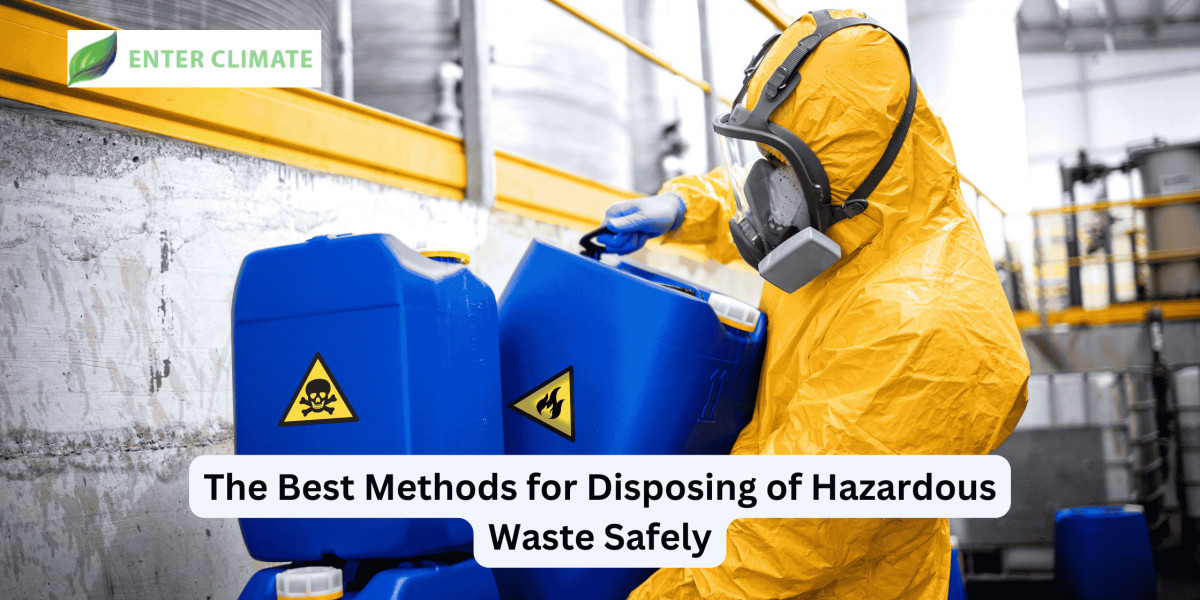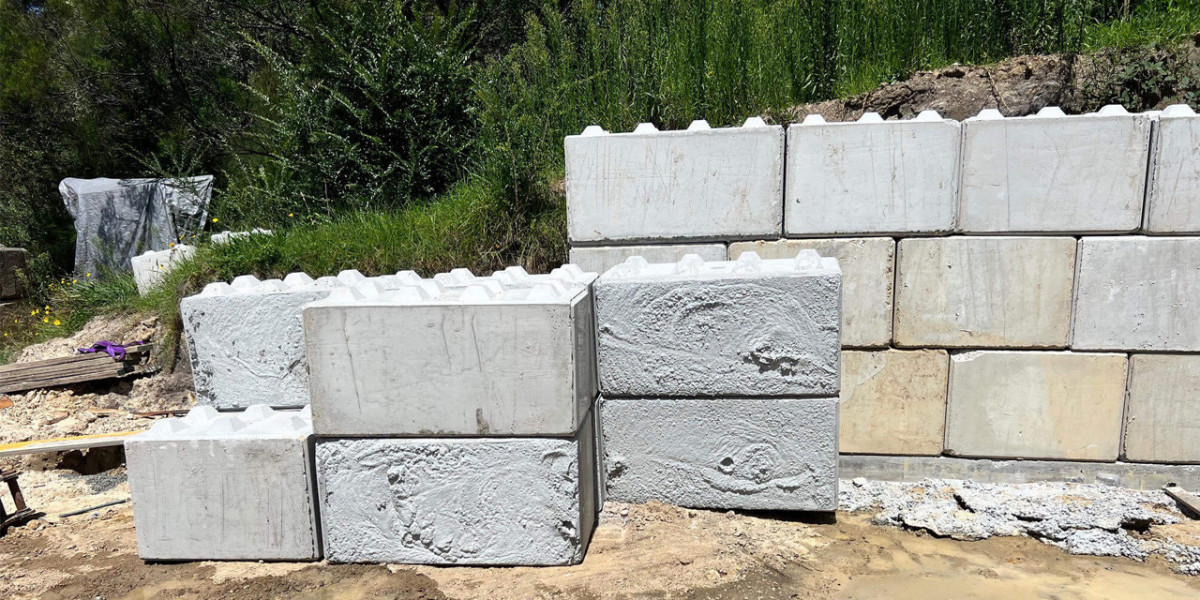Hazardous waste disposal is an important yet often overlooked part of waste management. From household items like batteries and cleaning agents to industrial waste such as chemicals and solvents, hazardous waste is everywhere. Improper disposal of these materials can pose serious risks to the environment, human health, and wildlife. Therefore, it’s essential to understand the safest methods for disposing of hazardous waste.
In India, the growing concern over hazardous waste management has led to various regulations, yet many people are still unaware of how to safely dispose of these materials. This blog will explore the best methods for disposing of hazardous waste safely, ensuring that you can contribute to a cleaner and healthier environment.
What Is Hazardous Waste?
Before diving into disposal methods, it's important to understand what hazardous waste is. Hazardous waste is any material that can cause harm to humans, animals, or the environment when not disposed of properly. These wastes can be solid, liquid, or gas, and they include items like paints, pesticides, used batteries, medical waste, and chemicals.
The proper disposal of hazardous waste is governed by regulations in India, such as the Hazardous Waste Management Rules, 2016. The guidelines ensure that these materials are managed and disposed of safely, minimizing risks to public health and the environment.
1. Segregation of Hazardous Waste
The first step in safely disposing of hazardous waste is proper segregation. Hazardous waste must be separated from general waste to prevent contamination and ensure that the correct disposal method is used. This is especially important for households and small businesses.
For instance, hazardous waste like batteries, paints, and medicines should be placed in separate containers from regular trash. Using clearly labeled bins for hazardous waste in homes and workplaces can ensure that the materials are disposed of safely and according to regulations.
2. Recycling Hazardous Waste
Recycling is one of the most effective ways to manage hazardous waste safely. While it may not be suitable for all types of hazardous materials, many can be recycled with the proper technology. For example, e-waste, which includes old electronics such as phones, laptops, and televisions, often contains hazardous materials like lead, mercury, and cadmium. Recycling these items through certified e-waste recycling centers helps recover valuable metals and reduces environmental contamination.
In India, several companies specialize in the safe recycling of electronic waste. The Extended Producer Responsibility (EPR) regulation encourages producers to take responsibility for their products after they reach the end of their life cycle. This regulation has led to a rise in authorized recycling centers that can process e-waste safely.
For other types of hazardous waste, such as solvents, chemicals, and oils, recycling also plays an essential role. Specialized companies collect these materials and process them in a way that reduces their impact on the environment.
3. Incineration of Hazardous Waste
Incineration is a commonly used method for disposing of certain types of hazardous waste, particularly those that cannot be recycled or treated. This process involves burning the waste at high temperatures to reduce it to ash, gas, and heat. When done properly, incineration can destroy harmful pathogens, chemicals, and toxins, preventing them from leaching into the soil or water supply.
In India, industrial-scale incinerators are designed to handle hazardous waste, such as medical waste, certain chemicals, and plastics. It’s crucial that the incinerators are properly maintained and operated according to strict environmental standards to minimize air pollution and other harmful effects.
4. Chemical Neutralization
Some hazardous waste, such as acids or caustic chemicals, can be neutralized through chemical reactions. This process makes the waste less hazardous by converting it into less harmful substances. For example, sulfuric acid can be neutralized with sodium hydroxide, creating water and a neutral salt.
Chemical neutralization is typically carried out in controlled facilities by professionals who are equipped to handle dangerous substances safely. While this method is effective for certain types of waste, it’s not suitable for all hazardous materials. Careful analysis is needed to determine the best chemical treatment for each type of waste.
5. Secure Landfilling for Non-Recyclable Hazardous Waste
While landfilling is often considered a last resort, it remains a viable method for disposing of certain hazardous wastes that cannot be recycled or treated. However, hazardous waste must be placed in specially designed landfills called secure landfills.
These landfills are engineered to prevent contamination of the surrounding environment. They feature multiple layers of liners to protect groundwater from leachate (toxic runoff from waste). Regular monitoring ensures that there is no leakage, and the waste is safely contained.
In India, there are stringent regulations that govern the design, operation, and maintenance of secure landfills. The Central Pollution Control Board (CPCB) sets guidelines to ensure that hazardous waste disposal in landfills doesn’t pose a threat to the environment.
6. Professional Hazardous Waste Management Services
For businesses, industries, and even households with large amounts of hazardous waste, professional hazardous waste management services are highly recommended. These services are specifically trained to handle hazardous materials, ensuring they are disposed of according to safety regulations.
These companies offer services such as hazardous waste collection, transportation, treatment, and disposal. They ensure that your hazardous waste is managed in a way that complies with both national and international standards. They also help with documentation and provide audits to ensure you are following the law.
7. Household Hazardous Waste Collection Points
For households looking to dispose of hazardous materials like expired medicines, cleaning products, or old batteries, many cities in India offer designated hazardous waste collection points. These are usually organized by local municipal authorities or waste management companies, where citizens can drop off their hazardous waste.
By using these services, residents can safely dispose of small quantities of hazardous waste without worrying about contamination or environmental harm. Many cities are now introducing these collection programs to encourage proper disposal and recycling practices.
Conclusion
Proper hazardous waste management is vital for the health of our environment and the safety of human life. Whether it's recycling, incineration, neutralization, or secure landfilling, there are numerous methods available for safely disposing of hazardous waste. The key is understanding what types of waste you’re dealing with and ensuring that it’s disposed of using the correct method.
As India continues to grow and industrialize, the importance of following safe hazardous waste disposal practices will only increase. By educating ourselves and following these disposal methods, we can play a part in reducing pollution, conserving resources, and protecting our planet for future generations.
FAQs
What is hazardous waste?
Hazardous waste is any material that can cause harm to humans, animals, or the environment when not disposed of properly. Examples include chemicals, batteries, paints, and certain medical or industrial waste.
Why should hazardous waste be disposed of safely?
Improper disposal of hazardous waste can lead to severe environmental damage, health risks, and contamination of soil, water, and air. Safe disposal methods help mitigate these risks and protect public health.
Can I recycle all types of hazardous waste?
Not all hazardous waste can be recycled. Items like e-waste, certain chemicals, and solvents can be recycled safely. However, other materials like medical waste or hazardous liquids may require incineration or secure landfilling.










